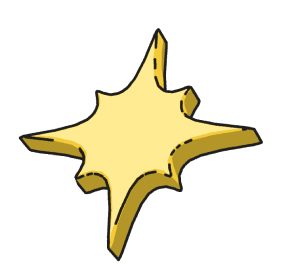Bachelor of Science
Other Science
A course by
University of Waikato
Waikato's Bachelor of Science is a flexible, hands-on degree covering a wide range of science, mathematics, and computing disciplines, designed to prepare graduates for careers in scientific industries or further study.
In-person study
Face-to-face learning in a physical classroom setting
Available in 2 locations
It will take a total of 3 years
Core skills this course teaches

Progressive mastery across scientific disciplines
Demonstrate progressive learning at three levels of difficulty in science, maths, or computing specialisations based on chosen major.

Subject mastery
Acquire specific knowledge, concepts, and content relevant to chosen majors and apply them in various contexts.

Intellectual adaptability
Develop intellectual flexibility for applying knowledge to practical and real-world situations.
What You're Signing Up For
The Bachelor of Science at the University of Waikato offers a flexible programme allowing you to explore and specialise in science, mathematics, or computing fields. With a strong focus on practical, hands-on experience, students engage in laboratory work, field trips, and work-integrated learning. The degree emphasizes employability by combining foundational knowledge with opportunities in research, technology, and interdisciplinary science. Majors are selected after the first year, and you benefit from world-class facilities and supportive learning environments.
Course Content
- SCIEN100 Science and Mātauranga Māori
- List A: Science Fundamentals (may include): Physics in Context, Introduction to Aquaculture, Concepts of Biology, Introduction to Ecology and Biodiversity, Introduction to Human Biology, Chemistry in Context, Structure and Spectroscopy, Chemical Reactivity, Introduction to Climate Change Science, Introduction to Earth System Sciences, Discovering Planet Earth, Environmental Science, Marine Biodiversity, General Physics
- List B: Work-Integrated Learning (choose one): The Impact Lab, Capstone Project, Undergraduate Research Project
- List C: Science Numeracy (may include): Physical Chemistry, Analytical Chemistry, Introduction to Programming, Object-Oriented Programming, Discrete Structures, General Mathematics, Data Structures and Algorithms, Introduction to Databases and Web Development, The World of Data, Mathematics 1A/B, Engineering Maths and Modelling, Statistics for Science, Epidemiology and Bio-statistics
- Electives and Majors in specialist fields including but not limited to: Animal Behaviour, Aquaculture, Biochemistry, Coastal Processes, Crime Science, Psychology, Statistics, Geology, Hydrology, Soil Science, Computer Science, Marine Science, Mathematics, Artificial Intelligence, Data Analytics
- Laboratory work and field trips
- Optional minor subjects
What you need to know first
NCEA University Entrance or equivalent
Discretionary entrance may be considered
Special admission pathways available

What sort of industry will this job lead to
Scientific Research
Laboratory Services
Environmental Science
Information Technology
Education
Engineering (Some majors)

Future employment opportunities might be
Animal Welfare Officer
Chemical Analyst
Environmental Scientist
Laboratory Manager
Software Developer
Statistician
Web Architect